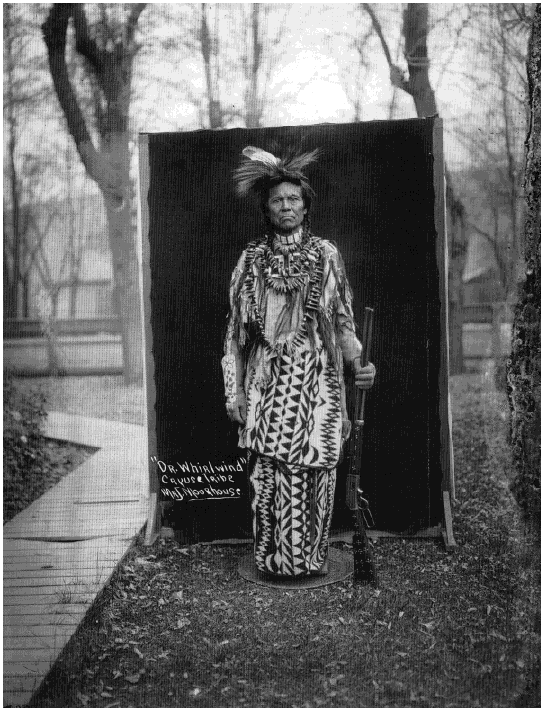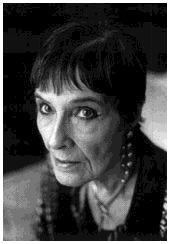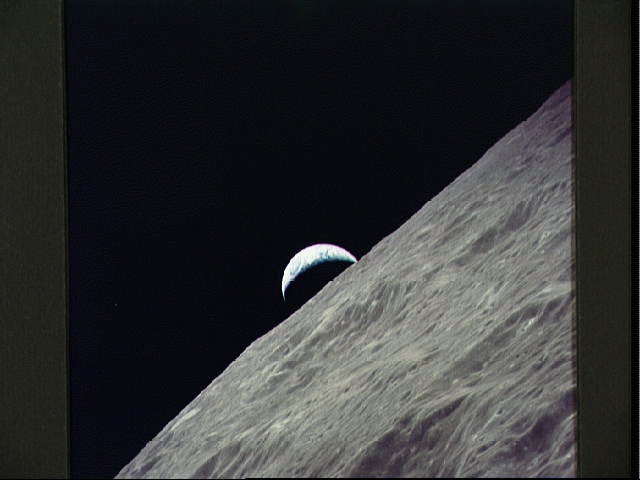
Peoples of the Plateau
The Indian Photographs of
Lee Moorhouse, 1898 - 1915
Steven L. Grafe
(University of Oklahoma Press)

Peoples of the Plateau came out almost five years ago, but we are so taken with it that we hasten to urge it on you, complete, as it is, with beautiful (if romantic) pictures of the southern Plateau Indians of the Columbia Basin and the Umatilla Indian Reservation (located around lower Walla Walla River, at the juncture of the Columbia and Snake Rivers). One photograph [above] shows "Dr. Whirlwind," complete with feathers, unsmiling face, lovely stitched blankets ... unsmiling shotgun, too.Especially beguiling are photographs taken at the Umatilla Indian School, the students complete in uniform and fedora, posing with rake in hand, as if they were in the fields already, being instructed on how to work the wheat and corn and oak crops, how to be hard-working slaves to the soil.
The Little Black Book
Of Grisélidis Réal
Days and Nights of
An Anarchist Whore
Jean-Luc Hennig,
Ariana Raines,
Translator
(Semiotext(e)/MIT) Hennig's job is working as a whore. 'Tis pity she's a whore? Perish the thought. She loves it, and after it is all over, before her clients get out the door, she hands them pamphlets of Prudhomme and Bakunin. Some of these tricks, apparently, don't get it. They're not interested in politics when they're involved in the beast with two backs.
Hennig's job is working as a whore. 'Tis pity she's a whore? Perish the thought. She loves it, and after it is all over, before her clients get out the door, she hands them pamphlets of Prudhomme and Bakunin. Some of these tricks, apparently, don't get it. They're not interested in politics when they're involved in the beast with two backs.Hennig may be a lady of the night, but she has a few strictures. She doesn't like being woken up too early to go to work. She doesn't like the guys who go on too long, without getting off: she gets bored. Yes, she washes them all down thoroughly before she begins operations, and she keeps a little black book, with a list of their preferences, what they prefer her to do, upside or downside, those little artful things she does with her hands ... the red whip, too, hanging there on the wall.
We do wonder, sometimes, though, what William Barton Rogers, the founder, some 200 years ago, of the Massachusetts Institute of Technology ... we wonder exactly what he would make of all this stuff, this world that Hennig describes so exactly, the stuff she does with her hands, and the washrag, and the red riding crop, etc., being distributed by MIT Press and all.
Apollo: Through the Eyes
Of the Astronauts
Robert Jacobs, et al, Editors
(Abrams)

They say that a quarter of the world watched the America astronaut step on the moon. The other three-quarters of the world were either without television, or too preoccupied with work or lack of money, or were put off by the whole thing. Me? I shudda stood in bed.The seventeen Apollo Missions cost America $145,000,000,000 (in 2008 dollars). They ran from 1961 - 1975. As D. M. Ashford reported in a recent TLS,
Apollo was not driven by military necessity or by the prospect of commercial gain. It was a political project. President Kennedy was far more interested in parrying the Soviet threat than in exploring the moon. He also wanted to demonstrate the benefits of large government programmes.
The Apollo moon landing was called "the greatest technological achievement in human history." Probably not. That doubtful honor should go to the Manhattan Project, the invention of the atomic bomb between 1942 - 1945, in which the U. S. Government put together the equivalent of a General Motors Corp. to build three squatty, little, and rather evil bombs. We are still living with the consequences of that turkey. Perhaps, like Harry Lime, we should give higher honors to the inventor of the cuckoo clock.
Those of us who were disinterested at the moon walk resisted the military ambiance of it all: burr-headed soldiers with their rigid little flags and their other-worldly machines, voices shorn of all human excitement ("A-OK"), locked mechanically in to what should have been the thrill of a lifetime. Why, we wondered, didn't they take someone interesting to the moon: a poet (Allen Ginsburg, Phillip Larkin); an artist (Ralph Steadman, Lucian Freud); a musician (John Cage, Dizzy Gillespie); a philosopher (Miguel de Unamuno, Roland Barthes, Jacques Derrida), or --- best --- a novelist (Norman Mailer, Philip Roth, Vladimir Nabokov)? We paid for it but felt no kinship with those frozen-face, stiff-backed military types.